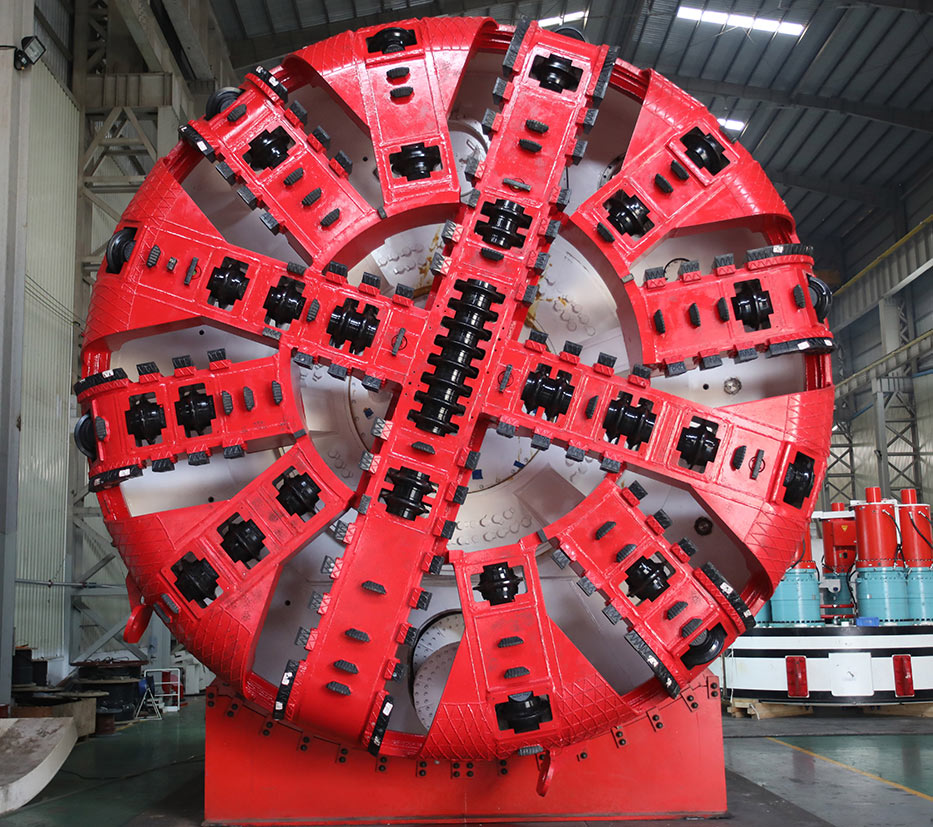EPBMs chosen for Pune Metro drives 02 May 2019
Having delivered 22 TBMs for projects in India in the last six years, Terratec has been selected again to deliver a number of 6.61m EPBMs for the two underground contracts on Line 1 of the new Pune Metro project in the State of Maharashtra by contractor Gulermak-Tata Projects JV.
The JV was awarded the two twin-tube design-build tunnel packages on the north-south corridor line in February 2019 by the Maharashtra Metro Rail Corporation (MMRC) (Fig 1). The 5km underground section of the 16.56km long Line 1 corridor that runs from PCMC to Swargate is the most challenging portion of the line, as it passes through the densely populated areas of Kasba Peth, Budhwar Peth and Mandai Market.
Along with the twin-tube EPBM drives, the Gulermak-Tata Projects JV includes design and construction of the Shivajinagar and Civil Court underground stations on contract UGC-01 and the Budhwar Peth, Mandai and Swargate underground stations on UGC-02 (Fig 1). Contract award value of UGC-01 is a combination of INR 8,647,139,476 (US$124.2 million) plus US$37.6 million, and for UGC-02 is INR 8,262,403,239 (US$ 119 million) plus US$40.57 million.
The Terratec EPBMs on order have a mixed-face dome-style cutterhead designed to work effectively in the compact basalt and under the groundwater table that is expected on these contracts and will require EPBM operation at pressures of up to 4 bar.
As the TBMs progress, they will install 1.4m wide x 275mm thick rings of precast segmental lining, each comprising five segments and a key.
The order comes after two 6.52m diameter Terratec EPBMs completed Phase 1A of the Lucknow Metro for the Gulermak-Tata Projects JV two months ahead of schedule in June 2018.
“Having completed the Lucknow Metro tunnels well ahead of schedule, Gulermak-Tata has once again put its confidence in our machines,” said Gulshan Gill, Managing Director of Terratec India. “In recent years, Terratec has emerged as the leading TBM supplier in the Indian market, with continuing success on underground sections of Phase III of the Delhi Metro, the Lucknow Metro, the Ahmadabad Metro and the Mumbai Metro. The success is the result of purpose designed TBMs, prompt onsite assistance, a readily available stock of spare parts, and skilled specialised support throughout the tunnelling operation,” added Gill.
The city of Pune has witnessed considerable growth in the areas of corporate and industrial infrastructure over the last decade. Existing roads in the city currently carry an average of 8,000 commuters an hour in each direction. The city experiences high peak hours traffic congestion that generates increased pollution.
The Pune Metro aims to provide a solution to the above issues by offering a safe and eco-friendly journey with a 50% reduction in travel times. When complete in 2022, the Pune Metro network will comprise three rail corridors with a total length of 54.5km. Construction of the first two phases is currently underway, while the third phase was approved for construction by the Government of Maharashtra in October 2018.
References
- Double breakthrough after challenging drive in India – TunnelTalk, June 2018
- Double TBM breakthrough in Lucknow – TunnelTalk, October 2017
- First deliveries to Mumbai with more to follow – TunnelTalk, August 2017
- Delhi Metro Phase III completes TBM excavation – TunnelTalk, February 2017
|
|
|
|
|
Add your comment
- Thank you for taking the time to share your thoughts and comments. You share in the wider tunnelling community, so please keep your comments smart and civil. Don't attack other readers personally, and keep your language professional.



